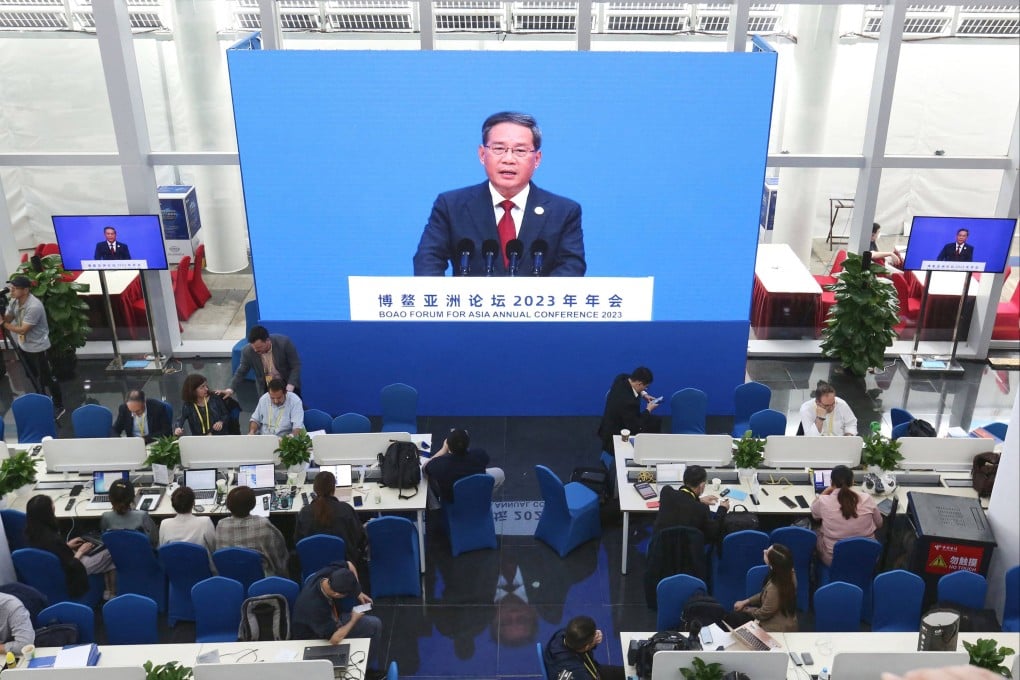China’s Premier Li Qiang lashes out at ‘new cold war’ in a speech putting Beijing at the centre of global economic stability
- Speaking at the Boao Forum for Asia, China’s Premier Li Qiang lashed out at trade protectionism and supply chain decoupling
- Li said China’s economic growth momentum is strong, while criticising unilateral sanctions and long-arm jurisdiction by the US

Chinese Premier Li Qiang said on Thursday that Beijing will stand firm against decoupling and trade fragmentation, while promising new efforts to reconnect the nation’s recovering economy with the world.
Li’s comments at the Boao Forum for Asia, dubbed Asia’s Davos, highlight that the world’s second-largest economy wants to optimise its domestic business environment, continue opening-up and play a stabilising role in global trade, which is mired by geopolitical tensions and financial turbulence.
“We’ll join hands to build a more dynamic growth centre and inject more certainty into the global economic recovery,” Li told hundreds of attendees, including visiting Singaporean and Malaysian leaders, ex-officials and business leaders.
“We oppose trade protectionism and supply chain decoupling, and want to ensure smooth global industrial and supply chains.”
We oppose the misuse of unilateral sanctions and long-arm jurisdiction